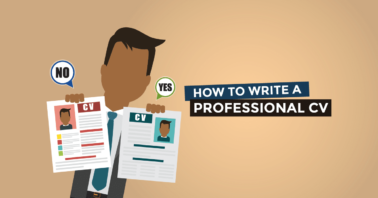We often hear advice about what we should do when applying for jobs, job search tips that help guide our hunt for the perfect position.
But here’s something that’s even more helpful when it comes to crafting the perfect application: advice on what not to do during your job hunt.
Recruiters and hiring managers all have their own personal preferences about little things that turn them off from candidates and applications. But when you look at some of the worst offenders, you’ll see many of them have pieces in common… and those are the biggies you want to avoid.
For this list of advice, we went straight to the recruiters and hiring managers who are actually filling open positions and asked them: What prompts you to toss an application right into the trash can? When might you lose interest in a candidate? What should Brazen Life readers avoid doing at all costs to increase their chances of landing that ideal position?
If you’re really keen about making a positive impression on recruiters, don’t do these things.
Table of Contents
1. Forget to proofread
“A colleague of mine once said, ‘A resume represents the best this person can possibly be.’ This is so true,” says Amanda Cohen, marketing manager for Homescout Realty, explaining that a resume “represents careful thought of what a job seeker wants an employer to know about them. There is limitless time to create, perfect, proofread, make changes, update, have consistent formatting, etc.”
A typo may be forgiven, but don’t ever expect an error-ridden resume to get moved to the right pile. “Even if a resume has one small error, I’ll give a pass,” Cohen says. “If there is more than one, but the candidate is exceptional, we might still get to an interview. If there are more than three, auto-fail.”
2. Ignore instructions
Instructions are there for a reason, so if a company has provided them on their job ad or application page, follow them!
When asked what he finds applicants consistently do wrong, Michael Hayes, owner of Momentum Specialized Staffing, replied:
“For our client base, it is people that can’t follow simple directions on how to apply. Our postings contain all the information: who, what, where. If we state [we’ll be hosting] open interviews, people call us asking how to apply. If we say, ‘send a resume,’ they call and ask how to apply.”
Want a surefire way to make potential employers doubt your ability to do the job right? Ignore basic instructions from the get-go.
3. Neglect your online presence
“People completely neglect to realize that there is far more information about you right at the fingertips of the person who will be making the decision as to whether or not you are a good candidate,” says Bill Fish, president of ReputationManagement.com.
Luckily, it’s easy to check up on how your online and IRL selves match up. “Simply Google yourself and see what is out there,” Fish says. “If there are any negative items, there are things you can do to protect yourself. The first move would be to remove any red-flag photos, reference to illegal activities, inconsistencies between what is on your resume and what is online. When that is completed, it is paramount to check your privacy settings on each platform.”
4. Spray and pray
Applying to multiple positions at the same company is a big no-no, says Adrian Granzella Larssen, editor-in-chief of The Muse.
“It’s fine to apply for more than one role if there are a few you’d be qualified for,” she says, “but it’s best to focus your search on just a couple and, again, tailor your application for each one. I’ve had people apply to every position I post, from the very junior to the very senior, and to me, that says, ‘I’ll take anything!’ Not exactly what most hiring managers want.”
5. Follow up excessively
While following up can be a good thing, Glen Loveland, HR manager for CCTV News, advises being careful with your timing, frequency and tone. “Virtually every recruiter is working with dozens of candidates at one time,” he says. “There’s a lot to prioritize … Apply, and if you don’t have any feedback for a week, you can follow up.”
What if you’ve gone through an interview and are waiting to hear back? Loveland reminds candidates to be patient — and avoid appearing desperate.
“My advice? Send thank you emails after each interview and then wait. If you get another offer in the interim and are going to accept, inform the recruiter,” Loveland says. “It’s quite simple. I think every recruiter on the planet wants to give their candidates a first-class experience, but we have limited resources. If you’re too aggressive or unpolished during the interview process, companies will think, ‘Wow, this person is going to be really high maintenance if we do hire them. Pass!’”
6. Put on a front
While you want to come across as polished and professional, it’s equally important not to hide who you really are.
“Many individuals come into interviews nervous and putting on a front that is almost robotic so that they can fit what they think is professionalism and ‘the perfect hire,’” says Anne St. Hilaire, marketing and PR coordinator for Recruiter.com. “However, nothing intrigues us more than meeting a person for who they really are and seeing how their personality will fit in with our team. As we all know, hiring for company culture is key, so show us what you’ve got!”
Linda Parry, CEO of Product Launchers, agrees.
“Too often candidates believe that in order to sound smart, they need to be scripted. Cut the clichéd terms out of the cover letter and tell the prospective business WHY you want to work THERE and WHAT makes you theabsolute, hands-down BEST candidate for the position. Get creative! And be unique.”
Case in point? She recently offered a job to a cold-caller applicant because he got her attention by going off-script and “speaking to me like a human.”
If you hire for your company, what other big no-nos are on your list of advice for applicants?
Source: Brazen Careerist




